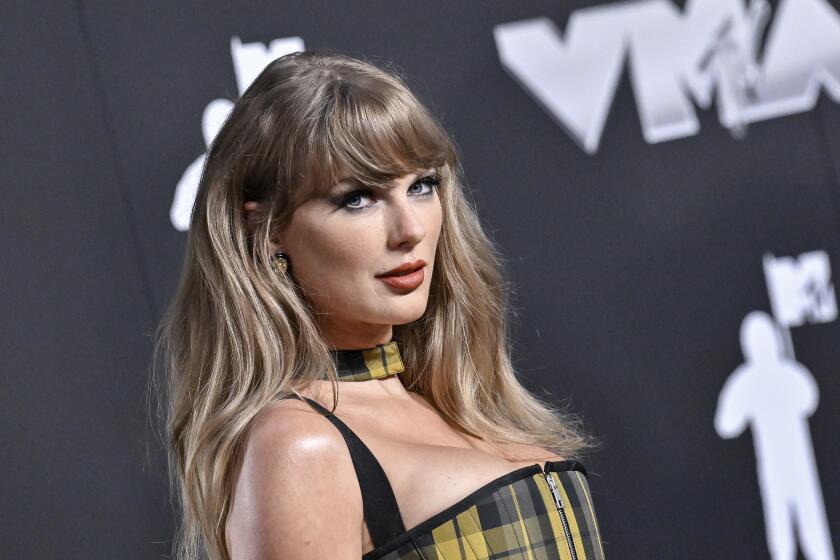JAZZ REVIEW : Music With a N.J. Bounce in a Bucolic Setting
STANHOPE, N.J. — The annual jazz festival organized in New York is by no means a single-city event. For those who prefer their celebrations in a more bucolic setting, the New Jersey Jazz Society collaborates with JVC, the main promoter, to offer a weekend of jazz in the grassy acreage of Waterloo Village, an hour’s drive from the big, bustling apple.
The ambiance here is not unlike that of Nice, on a larger scale. For six hours, music radiated from three areas. Blankets, beach umbrellas, picnic lunches and chaises longues were de rigueur for some, while others sat in the shade under the main tent, which accommodated most of the 3,000 visitors Sunday afternoon.
Of the five groups in this venue the most distinctive was a quintet led by the organist Jimmy McGriff, one of those hardy souls who seem determined to prove that synthesizers have not rendered the Hammond B-3 obsolete. The sly slide trombone of Al Grey was a featured attraction, sharing the front line with Bill Easley, a gutty saxophonist. Organ groups get along very handily without a bass player, but invariably use a guitar, in this case a promising youngster named Bob de Vos, who lent funk and fire to such tunes as “The Preacher.”
In a smaller, open-air garden spot called the Gazebo, sun-baked listeners heard a more conventional group, notable for the presence of pianist John Colianni, whose facility for stating melodies with deft assurance has been in relative obscurity since the end of his two- year tour with Lionel Hampton.
The most intimate of the three settings was a cafeteria, where trio music led by guitarist Harry Leahy was being played.
He was supported by Gary Mazzaroppi, one of those bass players who leave you wondering how such talented artists can remain virtually unknown.
Back in the main tent the free-wheeling spirit was sustained by a lineup of soloists ranging in age from the youthful cornetist Warren Vache to the saxophonist Al Klink, whose credits go all the way back to the original Glenn Miller band. A trombonist named Dan Barrett vied for attention with a name band veteran of the 1950s, Urbie Green; both men gave credence to the belief that this instrument deserves to be retained in the jazz spotlight.
If one fact stood out during the day, it was the easy give-and-take that pervaded every rhythm section. Mainstream bands that once had to put up with sluggish rhythm teams can now rely on support that borders on the virtuosic. Typical was a threesome that included Derek Smith, the English-born pianist, Bobby Rosengarden on drums, and the facile Harvie Swartz on bass.
The final set under the big tent was directed by George Wein himself, who has often stated that the burdens of operating festivals around the world are greatly relieved when he can relax at the piano. On this occasion the keyboard in question had a loose key or two, but Wein, unfazed, went through his Teddy Wilson-Earl Hines-Fats Waller motions most handily. His band was embellished by two saxophonists: Harold Ashby, the warm-toned tenor of Ellington renown, and Billy Mitchell on alto.
It was almost, but not quite, worth the price of admission to hear Wein’s vocal on “Just a Gigolo.” Rarely is an anxious audience treated to the voice of a world-famous impresario raised in song. He sang with the consummate ease of a man who has just heard that both his concerts for tonight have sold out.
More to Read
The biggest entertainment stories
Get our big stories about Hollywood, film, television, music, arts, culture and more right in your inbox as soon as they publish.
You may occasionally receive promotional content from the Los Angeles Times.










